Overview
The Community Advisory Board (CAB) oversees and guides core projects with the HPRC. The CAB provides important links to the broader Boston and Massachusetts community, other states, and the National Community Committee of the Centers for Disease Control and Prevention (CDC)’s Prevention Research Center (PRC) program. Members participate in strategic planning and project activities and assist with developing community-appropriate dissemination strategies.
CAB responsibilities have included:
- Contributing to the HPRC’s Community Partners Meeting. Specifically, CAB members advise on the content of the meeting based on the interests and needs of various community members. Past meetings addressed screen time, sugar-sweetened beverages and water access in communities, schools, and work sites.
- Engaging in strategic planning for the HPRC’s research agenda. This process will be guided by input received and ideas generated at the Community Partners Meeting.
- Assisting in developing the structure and content of the Leaders in Health community training program. The goal of this program was to build the capacity of our community partners by providing staff with an introduction to the fundamentals of community-based participatory research, program planning, and evaluation.
- Co-developing a community consultation service to foster reciprocity between the HPRC and our community partners. We currently offer one-on-one technical assistance and small group trainings to support planning, evaluation, communications, and grant writing activities focused on nutrition and physical activity topics.
- Assisting in the development and dissemination of the Out of School Time Nutrition and Physical Activity (OSNAP). Members involved with out of school time programming, city and state agencies, and local youth serving organizations, provided input on study design, identification and recruitment of out of school time programs and other collaborators, intervention materials, interpretation of results, and strategies for dissemination. Several organizations who have participated in the community committee over the years (the Boston Public Health Commission and the Massachusetts Department of Public Health) have worked directly with the HPRC to disseminate OSNAP through Boston’s REACH initiative and the state’s Mass in Motion Kids program.
Membership
Initial appointments are for two years and appointments will continue to be reconsidered on a two-year basis. Full meetings occur quarterly each year. Between meetings, CAB members have opportunities to get involved with specific PRC projects throughout the year.
Members
Nineequa Blanding, MPH | CAB Co-Chair
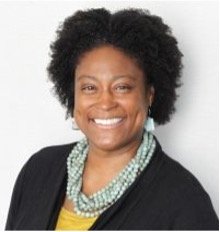 Health Justice Senior Editor
Health Justice Senior Editor
Nonprofit Quarterly
Nineequa Blanding is the Health Justice Senior Editor at Nonprofit Quarterly. With over 15 years professional experience, she has dedicated the entirety of her career towards working at the intersection of health and social justice. Prior to joining NPQ, Nineequa was Vice President at Health Resources in Action where she led the direction and growth of the organization’s grantmaking services, comprising a portfolio of over $50M towards community health and biomedical research. Nineequa was the former Director of Health and Wellness at the Boston Foundation (tBF), where she applied her vision, leadership and racial equity lens to develop, implement, and evaluate the Foundation’s strategic priority to improve population health. Prior to her work at tBF, she held senior leadership positions at the Boston Public Health Commission where she led local and statewide strategies to advance health equity. She also held former roles with Mount Sinai School of Medicine, and the New York City Department of Health and Mental Hygiene. Nineequa currently co-chairs the Harvard T.H. Chan School of Public Health Prevention Research Center (PRC) Community Advisory Board. She received her bachelor’s degree in psychology from Spelman College, a master’s degree with honors in public health from Long Island University in—her hometown—Brooklyn, NY. Nineequa was previously funded by the National Institutes of Health to conduct post-baccalaureate research in trauma-related risk factors for post-traumatic stress disorder at Emory University and the Center for Cognitive Neuroscience at Duke University.
Mary Bovenzi, MPH | CAB Co-Chair
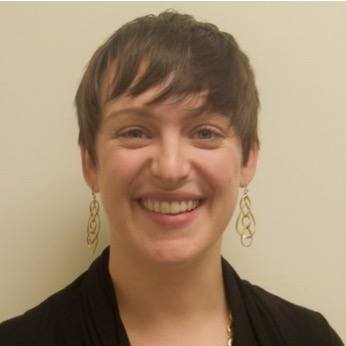 Director, Chronic Disease Prevention & Control Division
Director, Chronic Disease Prevention & Control Division
Boston Public Health Commission
Mary Bovenzi is the Director of the Chronic Disease Prevention and Control Division at the Boston Public Health Commission (BPHC), leading BPHC’s work on primary and secondary prevention of chronic diseases including obesity, cancer, diabetes and heart disease. The division implements high quality programs and policy/systems change projects focusing on increasing Boston residents’ access to nutrition and healthy foods, physical activity, workplace wellness, and cancer screening. Ms. Bovenzi has been with the BPHC for seven years, also serving as the division’s Associate Director and as Project Director of the Centers for Disease Control and Prevention (CDC) funded Partnerships to Improve Community Health project. Prior to BPHC, she served as a CDC Public Health Prevention Fellow, and received her MPH from the University at Albany School of Public Health.
Elana Brochin, MS, MPH
 Program Director for Health Equity
Program Director for Health Equity
Massachusetts Association of Community Development Corporations
Elana Brochin is the Program Director for Health Equity at the Massachusetts Association of Community Development Corporations (MACDC). In this role, she drives MACDC’s emerging work to promote health equity by accelerating the convergence of community development and health through policy, partnerships, technical assistance to MACDC’s members, training, research, and other strategies.
Prior to working at MACDC, Elana worked as the Health Care Project Manager at the Massachusetts Attorney General’s Office (AGO), where she managed the update of the Attorney General’s Community Benefits Guidelines. Previous to her work at the AGO, Elana worked as a Research Coordinator and Research Associate at the Institute for Aging Research.
Elana holds a MS/MPH in Food Policy and Applied Nutrition and Public Health from Tufts University, and a BA in Sociology and Feminist Gender and Sexuality Studies from Cornell University.
Fernanda Campbell, PhD
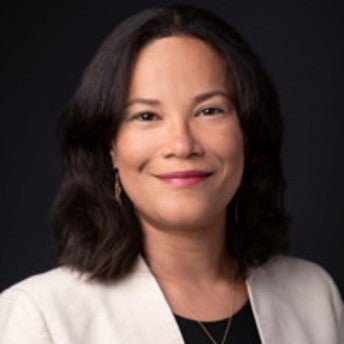 Senior Manager of Research
Senior Manager of Research
Boston Opportunity Agenda
Fernanda Campbell is a researcher with experience in public health, neuroscience and education. She serves as the Senior Manager of Research for the Boston Opportunity Agenda. In this role, Fernanda works to increase cross-agencies collaboration around data on early education and care, leads analysis and publications about early education and care, supports a city-wide project to measure family engagement, and co-manages a three-year project to reduce disconnection rates among opportunity youth in Boston.
She holds a degree in Speech & Hearing Sciences from the State University of Bahia and a Master’s Degree in Neuroscience from the Federal University of Bahia (Salvador-BA, Brazil). After working five years at a safety net hospital in Brazil, researching and mainly treating people with orofacial clefts, Fernanda moved to the United States as a Fulbright scholar and earned a Ph.D. from the Department of Maternal and Child Health at the University of North Carolina at Chapel Hill.
Jill Carter, MA, EdM
 Senior Executive Director, Office of Social Emotional Learning and Wellness
Senior Executive Director, Office of Social Emotional Learning and Wellness
Boston Public Schools
Jill Carter, MA, EdM, is the Senior Executive Director for the BPS Office of Health and Wellness, leading the district’s Whole School, Whole Community, Whole Child Approach. The Health and Wellness Office includes: Wellness Policy, Promotions and Evaluation, Social Emotional Learning Instruction, Health Education, Physical Education and Physical Activity. For more than 20 years, Jill has worked on policy, curriculum development, implementation, training and research of school-based health programs. She has held various leadership roles in BPS for more than 10 years. As the Curriculum Development Coordinator for the School-based Wellness Initiative at the Harvard School of Public Health, she co-authored Planet Health: An Interdisciplinary Curriculum for Teaching Middle School Nutrition and Physical Activity, an evidence-based curriculum. Jill started her career in education as a high school and middle school science teacher. She earned her Master of Education degree in teaching and curriculum from Harvard University and her Master of Arts degree in exercise physiology from the University of Iowa. She is passionate about creating healthy schools, eating healthy and being physically active, and the power of teams to solve difficult problems.
Barry Keppard, AICP
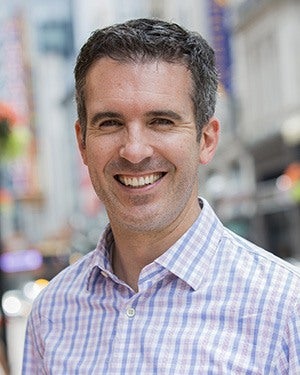 Director of the Public Health Department
Director of the Public Health Department
Metropolitan Area Planning Council
Barry Keppard is the Director of the Public Health Department at the Metropolitan Area Planning Council (MAPC). Previously, he was a Senior Regional Planner with MAPC and leading work for the implementation of the MetroFuture Plan through a combination of public health, land use, environmental, and transportation planning projects.
As the department director, Barry supervises and provides technical assistance on MAPC’s Health in All Policies and healthy community design projects, including the recent Community Transformation Grant for Middlesex County. MAPC’s work focuses on increasing the accessibility and affordability of healthful foods, assisting cities and towns with adoption of comprehensive community design approaches to enhance walking, bicycling, and active transportation, and increasing tobacco- and smoke-free settings. He also manages the department’s health impact assessment practice which aims to strengthen the connection between physical and environmental factors and health, and to look at how policies and programs can reduce health inequities. MAPC has used health impact assessments to positively influence policies affecting public transit, speed limits, school building, and funding for community development as well as to shape a private equity fund.
Additionally, Barry is leading MAPC’s internal Health in All Policies initiative to integrate approaches, findings, and recommendations into the organization’s practice areas, including Clean Energy, Housing, Transit Oriented Development, and Climate Change Adaptation.
Barry’s background includes a Bachelor’s degree in Biology and a Masters in Regional Planning, and he has over 12 years of planning experience in the public and private sectors.
Kristen McKinnon
Assistant Director, Student and Family Support
Massachusetts Department of Elementary and Secondary Education
Kristen McKinnon is the Associate Director of the Office of Student and Family Support (SFS) at the Massachusetts Department of Elementary and Secondary Education. SFS works in partnership with educators, schools, students, families, and other agencies and organizations across the Commonwealth to advance the Department’s mission. This work helps further the Department’s strategic priorities, including but not limited to supporting social emotional learning, health, and safety.
Tish McMullin, JD
 Executive Director
Executive Director
Conference of Boston Teaching Hospitals
Tish McMullin, JD is the Executive Director of the Conference of Boston Teaching Hospitals (COBTH). Prior to this role, Ms. McMullin served as Special Counsel and Director of Government Affairs for Beth Israel Deaconess Medical Center (BIDMC). In this role, Ms. McMullin led the growing BIDMC system’s external relations with local, state and federal governments, and provided strategic guidance and legal counsel for a large, Harvard-affiliated academic medical center and its affiliated community hospitals.
Before joining BIDMC in July 2007, Ms. McMullin led Government Affairs offices for the Massachusetts League of Community Health Centers and the Massachusetts Association of Health Plans and began her career in health care as a Government Relations Associate at Partners Healthcare. McMullin has also served as Assistant General Counsel in the Massachusetts Senate Ways and Means Committee. She graduated from the University of Massachusetts at Boston with a Chancellor’s Scholarship for Excellence and earned her law degree from New England Law, Magna Cum Laude.
Ra'Shaun Nalls, MPA
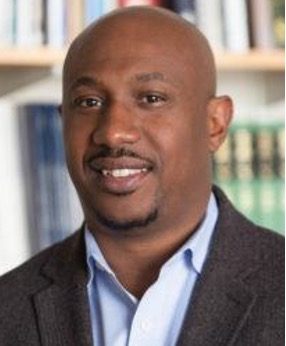 Director of Community Engagement
Director of Community Engagement
Harvard T.H. Chan School of Public Health
Ra’Shaun Nalls has worked with Boston-area community-based organizations for more than 15 years, with an emphasis on youth development and community organizing. He has been acknowledged for his community service by the Action for Boston Community Development (ABCD), the Boston Foundation, Boston Police Department, Suffolk County District Attorney’s Office, and the Harvard Youth Violence Prevention Center. Prior to his work at Harvard Chan, Ra’Shaun was a program manager at the Boston Public Health Commission; a community coordinator at Project R.I.G.H.T.; and at Roxbury Youthworks as an advocate for young women under state custody and at high risk of sexual exploitation.
Ra’Shaun holds a Master in Public Administration and a Bachelor of Arts in Community Studies, both from the University of Massachusetts Boston.
Shari Nethersole, MD
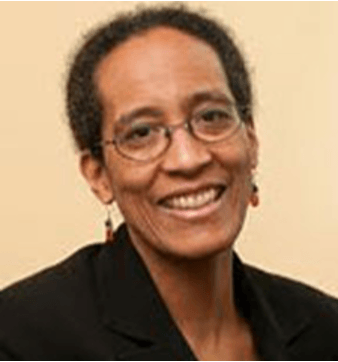 Vice President for Community Health and Engagement
Vice President for Community Health and Engagement
Boston Children’s Hospital
Shari Nethersole is the Vice President for Community Health and Engagement at Boston Children’s Hospital (BCH). In her current role, she oversees she oversees the Office of Community Health, which is responsible for Boston Children’s community mission to improve the health and well-being of children and families in the local community. Dr. Nethersole and her team work closely with staff and providers from across the hospital, community partners, and community health centers, as well as city and state agencies to develop programs and services designed to improve the health of children. They also advocate at the city and state level for child health priorities. Dr. Nethersole continues to provide care for patients and supervise residents at the Children’s Hospital Primary Care Center (CHPCC). Dr. Nethersole received her undergraduate degree from Yale University and her medical degree from Harvard Medical School. She completed her pediatric residency at Boston Children’s.
Lea Susan Ojamaa, MPH
 Deputy Director, Bureau of Community Health and Prevention
Deputy Director, Bureau of Community Health and Prevention
Massachusetts Department of Public Health
Lea Susan Ojamaa, MPH, is a Deputy Director for the Bureau of Community Health and Prevention at the Massachusetts Department of Public Health. In this position she provides strategic leadership and management to the Prevention and Wellness Branch of the Bureau.
Within the branch are the Divisions of Community Health Planning and Engagement, Health Protection and Promotion, Clinical Preventive Services as well as the Massachusetts Tobacco Cessation and Prevention Program. Programs include asthma, breast, cervical, colorectal and comprehensive cancer, diabetes, heart disease and stroke, overweight/obesity, tobacco cessation and prevention, oral health, occupational health, rural health, primary care workforce, community health workers, Mass in Motion, and healthy community design initiatives.
Lea Susan has held various positions since coming to the Department in 2000, including direct work in tobacco prevention and healthy communities. She has been in a leadership position since 2011 and took on the role of Chronic Disease Director for Massachusetts in 2013. As a Senior Manager in the Department, Lea Susan currently represents the Department on the MA Food Policy Council as well as the MA Healthy Aging Collaborative Executive Committee.
Lea Susan is very committed to public health as social justice and has been pleased to have the opportunity to be part of a team at the Department working to move strategies upstream to address root causes of health inequities and the social determinants of health. Lea Susan actively works with her team to bring a leading with race and racism framework to all prevention and wellness activities. Creating healthy and more equitable communities is what brought and keeps Lea Susan in public health.
Carlene Pavlos, MTS
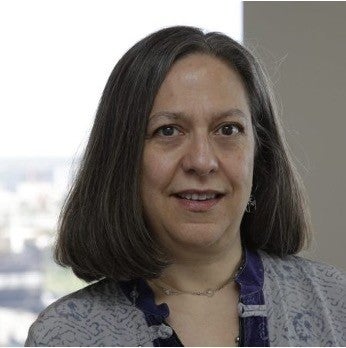 Executive Director
Executive Director
Massachusetts Public Health Association
Carlene Pavlos is the Executive Director of the Massachusetts Public Health Association, a statewide advocacy organization promoting policies that address the social and environmental conditions that determine health. MPHA is committed to health and racial equity and utilizes health equity framing in identifying policy goals. Prior to joining MPHA in April of 2018, Ms. Pavlos spent nearly 20 years at the Massachusetts Department of Public Health, most recently as the Director of the Bureau of Community Health and Prevention. As the Bureau Director she oversaw the Department’s work in the areas of violence prevention and services, suicide prevention, child fatality review, unintentional injury prevention, school and adolescent health, health access, nutrition and physical activity, tobacco control and prevention, chronic disease prevention and health systems transformation. Ms. Pavlos brings to her work a commitment to social justice and addressing health inequities – including racism, misogyny, homophobia/heterosexism, classism, and transphobia. She also has extensive experience working with incarcerated women, a population at particular risk for violent victimization and its associated health impacts. Ms. Pavlos holds a B.S. from Lafayette College and a Masters of Theological Studies from Harvard Divinity School.
Claire Santarelli, RD, CDE, LDN
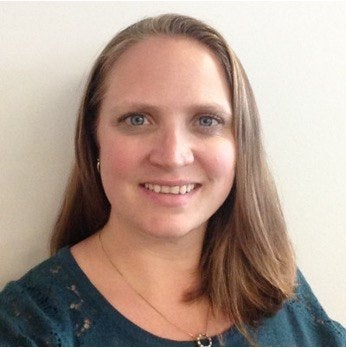 Director, Division of Health Protection & Promotion
Director, Division of Health Protection & Promotion
Massachusetts Department of Public Health
Claire Santarelli directs the Division of Health Protection and Promotion in the Bureau of Community Health and Prevention at the Massachusetts Department of Public Health. A registered dietitian and certified diabetes educator, Claire spent the first ten years of her career in direct patient care before seeking the opportunity to have a broader population impact by transitioning to the Department of Public Health. Her work focuses on implementation of policies and environments that protect and promote health in a variety of settings, and creating sustainable linkages between health systems and evidence-based resources in the community for the prevention and management of illness and injury. She is passionate about changing the conditions that impact people’s abilities to achieve their optimal well-being, and understands the critical role that structural racism plays in creating those conditions.
Last updated: June 1, 2023
 Health Justice Senior Editor
Health Justice Senior Editor Director, Chronic Disease Prevention & Control Division
Director, Chronic Disease Prevention & Control Division Program Director for Health Equity
Program Director for Health Equity Senior Manager of Research
Senior Manager of Research Senior Executive Director, Office of Social Emotional Learning and Wellness
Senior Executive Director, Office of Social Emotional Learning and Wellness Director of the Public Health Department
Director of the Public Health Department  Executive Director
Executive Director Director of Community Engagement
Director of Community Engagement Vice President for Community Health and Engagement
Vice President for Community Health and Engagement Deputy Director, Bureau of Community Health and Prevention
Deputy Director, Bureau of Community Health and Prevention Executive Director
Executive Director Director, Division of Health Protection & Promotion
Director, Division of Health Protection & Promotion